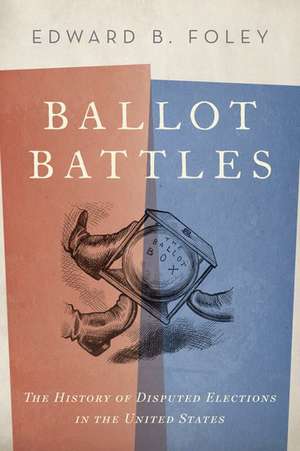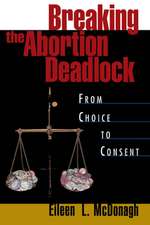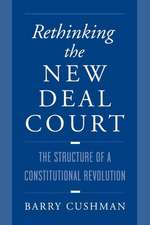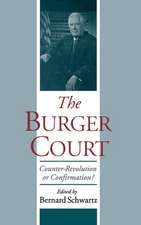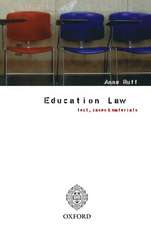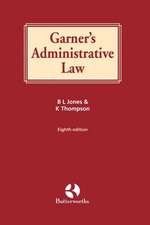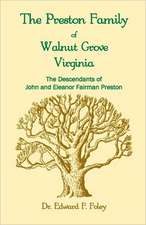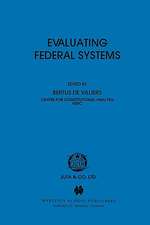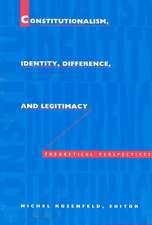Ballot Battles: The History of Disputed Elections in the United States
Autor Edward Foleyen Limba Engleză Hardback – 28 ian 2016
| Toate formatele și edițiile | Preț | Express |
|---|---|---|
| Paperback (1) | 166.12 lei 10-16 zile | |
| Oxford University Press – 20 iun 2019 | 166.12 lei 10-16 zile | |
| Hardback (1) | 275.75 lei 31-37 zile | |
| Oxford University Press – 28 ian 2016 | 275.75 lei 31-37 zile |
Preț: 275.75 lei
Preț vechi: 319.25 lei
-14% Nou
Puncte Express: 414
Preț estimativ în valută:
52.76€ • 55.09$ • 43.57£
52.76€ • 55.09$ • 43.57£
Carte tipărită la comandă
Livrare economică 04-10 aprilie
Preluare comenzi: 021 569.72.76
Specificații
ISBN-13: 9780190235277
ISBN-10: 0190235276
Pagini: 494
Dimensiuni: 160 x 236 x 38 mm
Greutate: 0.84 kg
Editura: Oxford University Press
Colecția OUP USA
Locul publicării:New York, United States
ISBN-10: 0190235276
Pagini: 494
Dimensiuni: 160 x 236 x 38 mm
Greutate: 0.84 kg
Editura: Oxford University Press
Colecția OUP USA
Locul publicării:New York, United States
Recenzii
Foley's examination of the most recent, and best known, ballot battle in 2000 bookends his study of the phenomena... Foley's view of the 2000 controversy may seem counter-intuitive to many, but his exhaustive scholarship and powerful argumentation mean that it is a view that should be taken seriously.
The vitality of democracy depends on honest elections and a fair count of the ballots. Yet as Edward Foley demonstrates in this eye-opening study, many close elections at all levels of American government since 1792 have resulted in contested outcomes that violated one or both of these requirements. With no standard mechanism in place to determine fairly the winner of disputed elections, the instability and bitterness that has marked past elections will likely persist into the future, he predicts, unless we can come up with an accepted means of arbitrating disputed results.
Ballot Battles isn't just the most comprehensive study of recounts to date; it's also a lens into our democracy. Foley pairs the clear-eyed perspective of an election lawyer with the idealism of a democratic theorist. He tells us not just who won and why, but who should have won and why we should care. The book is sure to become a touchstone for anyone interested in recounts and of interest to anyone interested in democracy.
Professor Foley is the national expert on recounts, and his book is required reading for anyone who cares about the history and future of American election controversies. Those interested in the history will marvel at the detailed and dramatic retelling of contested election controversies stretching from the Founding Era to our own. For students of contemporary politics and election law, the book provides a sobering lesson on the entrenched features of the American constitutional system that make resolution of such controversies so difficult and unlikely to be solved any time soon.
It's hard not to feel outrage and a little dread reading Edward Foley's retelling of ballot battles dating back to the nation's Founding. That's because, as Foley argues beautifully, American democracy lacks a fair, unbiased, non-partisan way to resolve contested elections. What will happen next time an election's outcome is in limbo? Ballot Battles makes a compelling argument that it could well be messy.
The vitality of democracy depends on honest elections and a fair count of the ballots. Yet as Edward Foley demonstrates in this eye-opening study, many close elections at all levels of American government since 1792 have resulted in contested outcomes that violated one or both of these requirements. With no standard mechanism in place to determine fairly the winner of disputed elections, the instability and bitterness that has marked past elections will likely persist into the future, he predicts, unless we can come up with an accepted means of arbitrating disputed results.
Ballot Battles isn't just the most comprehensive study of recounts to date; it's also a lens into our democracy. Foley pairs the clear-eyed perspective of an election lawyer with the idealism of a democratic theorist. He tells us not just who won and why, but who should have won and why we should care. The book is sure to become a touchstone for anyone interested in recounts and of interest to anyone interested in democracy.
Professor Foley is the national expert on recounts, and his book is required reading for anyone who cares about the history and future of American election controversies. Those interested in the history will marvel at the detailed and dramatic retelling of contested election controversies stretching from the Founding Era to our own. For students of contemporary politics and election law, the book provides a sobering lesson on the entrenched features of the American constitutional system that make resolution of such controversies so difficult and unlikely to be solved any time soon.
It's hard not to feel outrage and a little dread reading Edward Foley's retelling of ballot battles dating back to the nation's Founding. That's because, as Foley argues beautifully, American democracy lacks a fair, unbiased, non-partisan way to resolve contested elections. What will happen next time an election's outcome is in limbo? Ballot Battles makes a compelling argument that it could well be messy.
Notă biografică
Edward B. Foley is the Charles W. Ebersold and Florence Whitcomb Ebersold Chair in Law and Director of Election Law at the Ohio State University School of Law.
